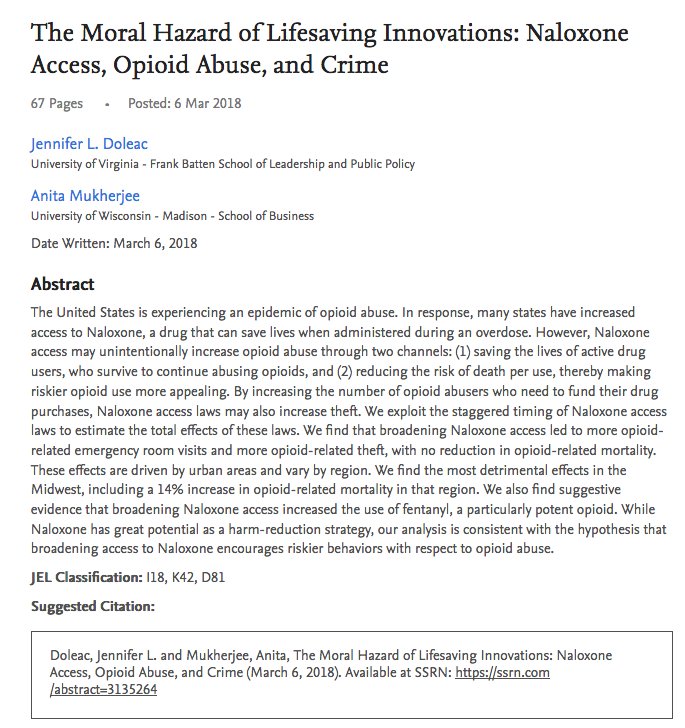
🚨NEW ANALYSIS🚨
When it comes to the surging overdose crisis, DOJ's role is widely ignored
Much of what DOJ is doing is fueling ODs. But it could be helping to curb them
How The DOJ Can Flatten the Overdose Curve theappeal.org/the-lab/report…
w/@MorganGodvin @JeremiahGoulka
When it comes to the surging overdose crisis, DOJ's role is widely ignored
Much of what DOJ is doing is fueling ODs. But it could be helping to curb them
How The DOJ Can Flatten the Overdose Curve theappeal.org/the-lab/report…
w/@MorganGodvin @JeremiahGoulka
As others have pointed out, RESTRAINT on drug-related prosecutions can help reduce overdose and other drug-related harms
This includes absurdly punitive efforts like drug-induced homicide prosecutions that make ODs into homicides and litigation to block harm reduction facilities
This includes absurdly punitive efforts like drug-induced homicide prosecutions that make ODs into homicides and litigation to block harm reduction facilities
But we also highlight opportunities for DOJ to address structural drivers of OD/addiction MORE AGGRESSIVELY:
- Prosecute patient abuse in "rehab industrial complex"
- Challenge zoning, housing discrimination
- Change regulations to promote medication access
- Facilitate research
- Prosecute patient abuse in "rehab industrial complex"
- Challenge zoning, housing discrimination
- Change regulations to promote medication access
- Facilitate research
- Restructure to abolish the failed DEA
- Advocate for reforms that align science and the law
- Focus on economic crimes like wage theft that drive problematic substance use
- Attack environmental crimes that cause conditions that cause poor health and problematic substance use
- Advocate for reforms that align science and the law
- Focus on economic crimes like wage theft that drive problematic substance use
- Attack environmental crimes that cause conditions that cause poor health and problematic substance use
• • •
Missing some Tweet in this thread? You can try to
force a refresh





